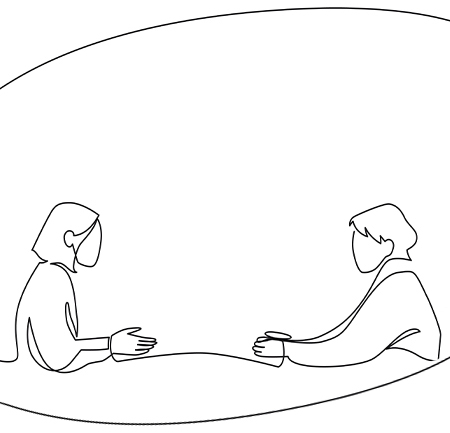 Coaching and therapy have differences.
Coaching and therapy have differences.
Coaching and therapy are two different approaches to personal development, but they can sometimes be confused.
While they (both) aim to help individuals improve their lives, they have different focuses and methods.
Coaching focuses on the following: Helping individuals clarify their goals and priorities, Providing a supportive and non-judgmental environment for growth and development, Offering practical tools and strategies to overcome obstacles and achieve success, Encouraging self-awareness and self-reflection, Fostering accountability and commitment to personal growth, and Helping with attaining the necessary mindset to surmount what’s keeping you stuck and allow you to develop goals to move forward.
Coaching is the best fit for you if you feel you are in a good place with your mental health but want support to take your next significant steps. We see new coaching clients, and some of our clients who initially came for therapy switch to more of a coaching model when they are ready.
Who is an ideal coaching client?
An ideal coaching client is willing and committed to changing their life. They have a strong desire to achieve their goals and want to take action to make it happen. Here are some characteristics of ideal coaching clients.
They are self-motivated, willing to take responsibility for their growth and development, and will put in the time and effort needed to achieve their goals. These clients are open-minded, willing to try new things, receptive to feedback, and ready to make changes based on their coach’s suggestions.
Coaching clients are committed to the coaching process and willing to work through challenges and setbacks. They understand that personal growth takes time and effort and will stick with it. These clients are also goal-oriented and committed to achieving them. They are willing to set specific, measurable, and achievable goals and work with their coach to create a plan to achieve them.
They accept accountability, are willing to take ownership of their actions, be held accountable for their progress, and are open to feedback and suggestions from their coach. They also display a positive mindset, focus on solutions rather than problems, challenge their limiting beliefs, and adopt a growth mindset to achieve their goals.
Overall, an ideal coaching client is ready and willing to make positive changes in their life and is committed to working with their coach to achieve their goals (despite this being uncomfortable at times!)
 Coaching clients have varied backgrounds.
Coaching clients have varied backgrounds.
Some are parents who are looking to find their identity after being a stay-at-home parent. When their kids launch, they sometimes don’t know where to start. Coaching helps clarify areas of passion and interest for them while providing support for the next chapter of their lives.
Coaching helps teens heading off to college by providing support and helping them establish a healthy school/fun balance. Teens also learn to work with executive function deficits related to ADHD challenges, set priorities around schedules, and receive guidance navigating becoming an independent adult for the first time.
Athletes and people who want to accomplish a significant physical goal, such as running a marathon or climbing a mountain, can benefit from coaching. Coaching will help athletes set goals and hold them accountable for achieving them.
Business professionals learn ways to improve their leadership skills, time management, communication, and other skills related to their job. Coaching also helps them identify behaviors and thought patterns that keep them stuck (i.e., perfectionism) and ways to move through that.
Coaching might be the answer for you.
If you identify with the ideal coaching candidates and the benefits that coaching offers, then you are likely to benefit from individual coaching.
Many of our clients have benefited from our coaching program. Please feel free to contact us at hello@therapyoutfitters.com for more information about what we have to offer.
Coaching can make a difference in your life!

